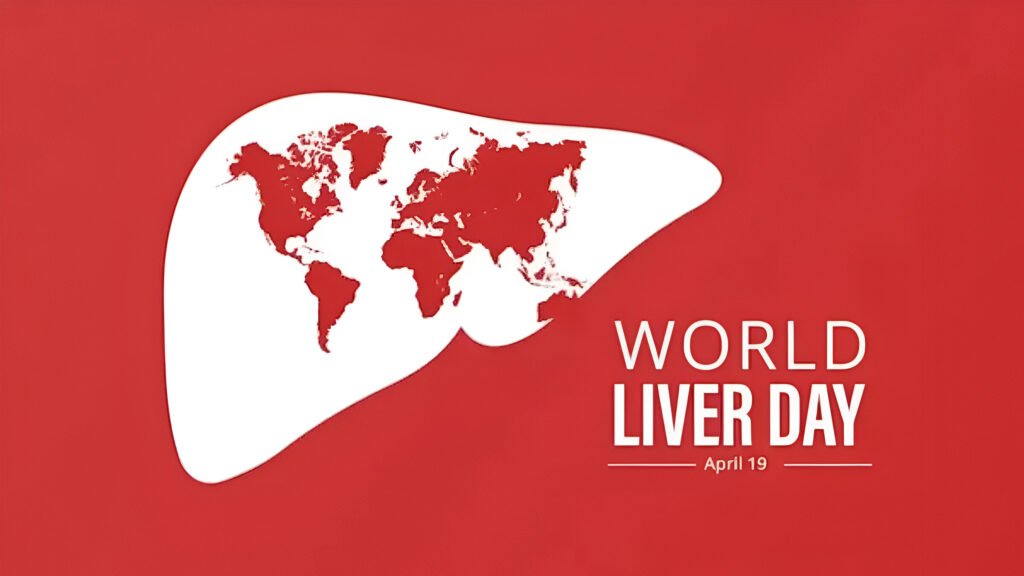
One of the body’s most critical organs, the liver performs more than 500 functions such as detoxification, metabolism, and production of vital proteins. Although crucial, the health of the liver is never considered until something goes wrong. During this World Liver Day 2025 whose theme is “Food Is Medicine,” the importance of how food affects the liver is given prominence.
The Silent Threat: Unhealthy Eating Habits
Convenience over nutrition is the way today in the hectic world. Consumption of foods with high levels of trans fats, processed carbs, and additives regularly can retard the liver’s functioning. Such diets can lead to disease like non-alcoholic fatty liver disease (NAFLD), which tends to develop over time without showing any noticeable symptoms.
The Power of Anti-Inflammatory Foods
Eating anti-inflammatory foods in your diet will provide your liver with a protective layer. Omega-3 fatty acid foods like walnuts, flaxseeds, chia seeds, and fatty fish like salmon and mackerel fight inflammation and aid liver function. Including a rainbow of colorful fruits and vegetables in your diet also provides you with necessary phytochemicals that detoxify.
Embracing Whole Grains and Fiber
Whole foods like brown rice, quinoa, and whole wheat have high dietary fiber content, which helps in easier digestion and regulates blood sugar. A minimum of 25 grams of fiber a day can do magic to reduce the burden on the liver. This can be achieved by increasing the serving of vegetables by two times and avoiding refined carbohydrates.
Lean Proteins: The Cornerstones of Liver Wellness
The liver synthesizes proteins our body needs. Inclusion of lean protein foods like legumes, tofu, edamame, nuts, seeds, skinless chicken, fish, and eggs in the diet can help in this synthesis. These proteins are not only low in saturated fats but are also rich in nutrients, which aids in healthy livers.

The Role of Herbs and Spices
Herbs and spices are not only flavoring agents but also have anti-inflammatory and antioxidant properties that are good for the liver. Turmeric, garlic, cumin, ginger, rosemary, oregano, and black pepper can be added to daily cooking to benefit the liver. Green tea, which is full of catechins, has also been found to benefit liver cells against damage.
Gut Health and Liver Connection
A healthy gut microbiota is necessary for a healthy liver. Prebiotic and probiotic consumption can be beneficial to create a healthy gut environment. Food rich in prebiotics are berries, oats, green leafy vegetables, lentils, and unripe bananas. Fermented foods containing probiotics are yogurt, kimchi, dosa, raw mango, lemons, cucumber, and beetroot.
Foods to Limit or Avoid
To ensure maximum liver health, it is necessary to restrict the consumption of certain foods and substances:
- Alcoho l: Chronic alcohol consumption can cause inflammation and damage of the liver.
- Sweets and sweetened beverages : Excessive sugar consumption can result in the storage of fat in the liver.
- Processed and Fried Foods : These have unhealthy fats and additives that put pressure on the liver.
- Excess Salt : High intake of sodium may reduce the liver’s antioxidant defenses.
Lifestyle Tips for a Healthy Liver
In addition to food choices, some lifestyle habits can also complement liver health:
- Regular Exercise: Physical activity reduces the accumulation of fat in the liver.
- Stay Hydrated: Having plenty of water flushes out toxins.
- Avoid Smoking: Smoking can damage liver cells and its function.
- Regular Check-ups: Early detection of liver issues may result in proper control.
Conclusion :
Taking Action Today Liver is a self-repairing organ with healing powers. With careful food choices and a healthy lifestyle, we can actually lower the risk of liver disease significantly. This World Liver Day, let us pledge to eat to live and put our liver health on top to make a healthier tomorrow.







